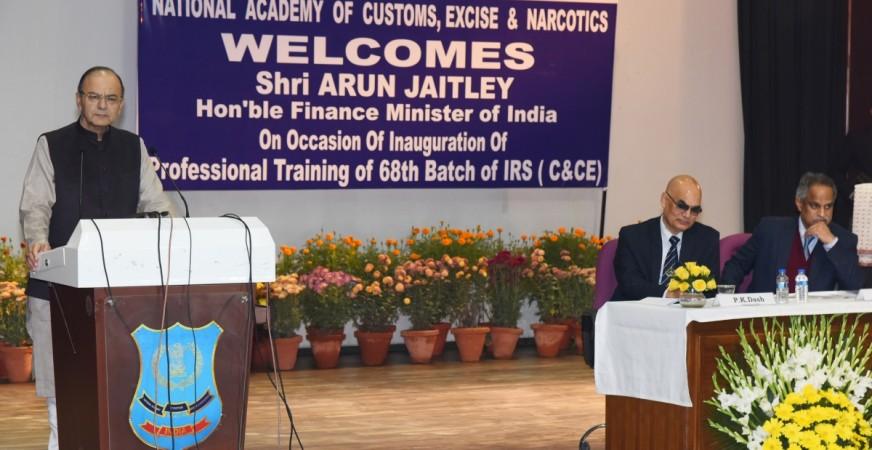
A day after clarifying that Prime Minister Narendra Modi's speech on taxation should not be seen as the government's intention to impose a tax on long-term capital gains (LTCG), Finance Minister Arun Jaitley has said that it's time India has tax rates that are "globally competitive," weeks ahead of Budget 2017.
The finance ministry posted a series of tweets quoting from his speech at the Professional Training of 68th Batch of IRS (C&CE) Officers NACEN Campus, in Faridabad, Haryana, on Monday.
"Taxes have to be globally competitive. Many economies, while they develop, payment of taxes is part of citizens' duty. Voluntary compliance by taxes by payment of tax dues need to be reciprocated by tax authorities by a tax friendly admin," he was quoted as saying by the ministry.
In a way, Jaitley was echoing what business chamber CII had suggested in its pre-budget letter submitted to the ministry, asking for lowering of personal and corporate tax rates.
"In the other Asian countries, the prevailing maximum tax rate in case of companies ranges from 16-25 percent. Also, average effective corporate tax rate across industry sectors in India is about 22-23 percent. It is suggested that the corporate tax rate should be brought down to 18 percent (all inclusive)," the CII said in its letter to the ministry a few days ago.
Jaitley's statement comes two days after Modi's comment at the inauguration of Sebi's NISM campus on Saturday where his speech was seen as a hint of the government taxing LTCG, currently exempt.
"...those who profit from financial markets must make a fair contribution to nation-building through taxes. For various reasons, the contribution of tax from those who make money on the markets has been low."
Income tax rates on individuals are also being seen as likely to be lowered, besides a tweaking of the minimum exemption limit, in view of the surge in tax collections on account of amnesty schemes and the expected windfall from demonetisation.
With indirect taxes not offering much scope for changes in view of the Goods and Services Tax (GST) likely to come into force, direct taxes are likely to see changes in the upcoming budget.

















